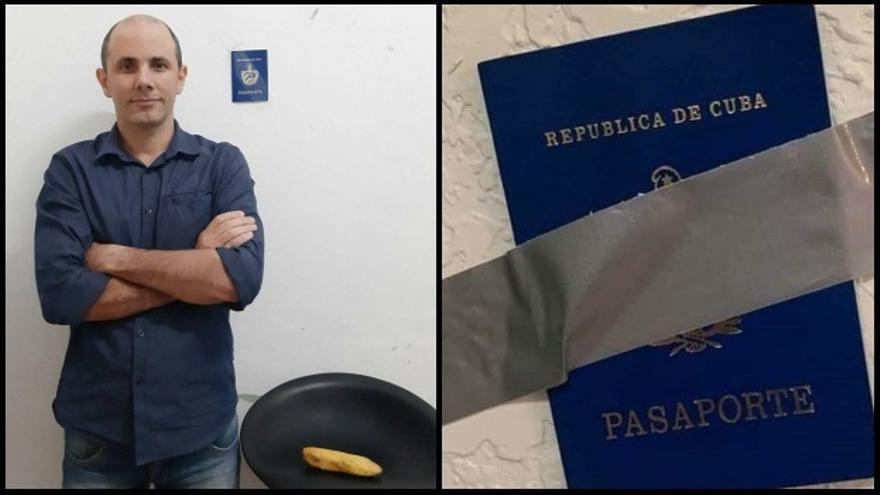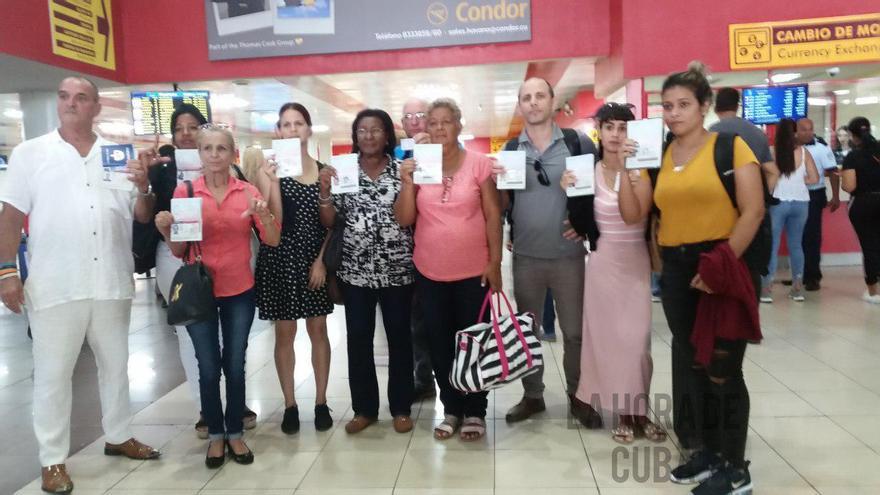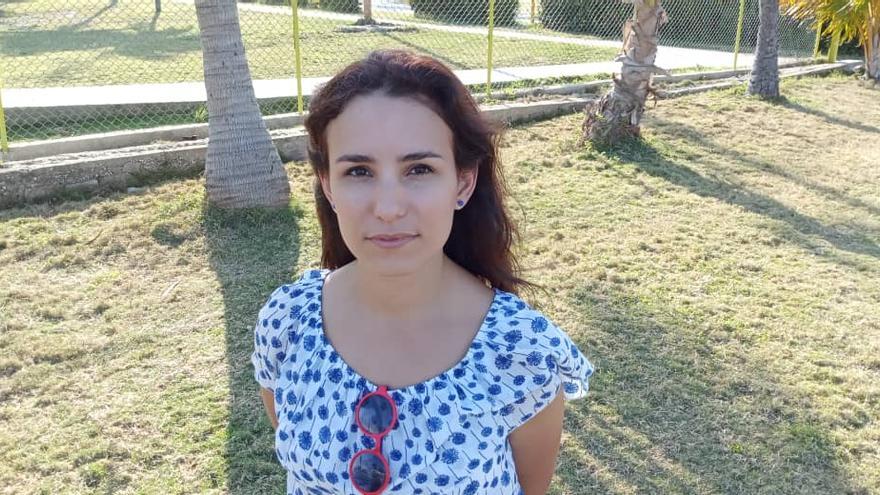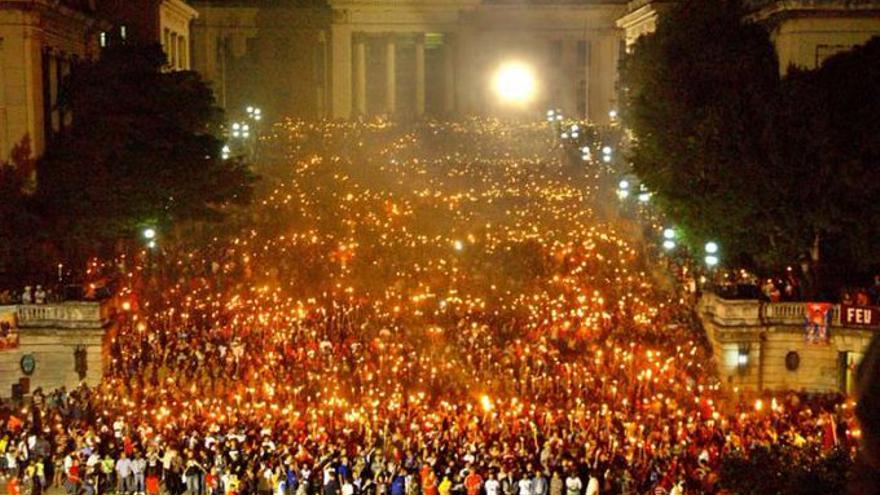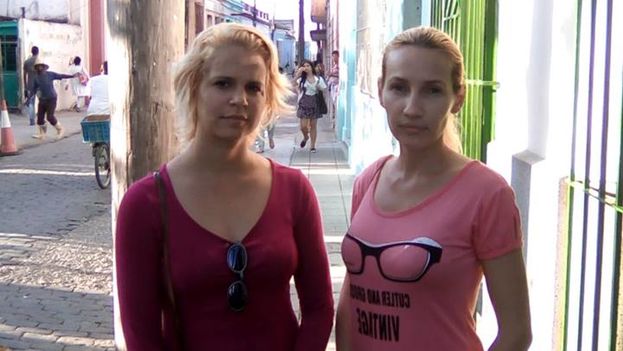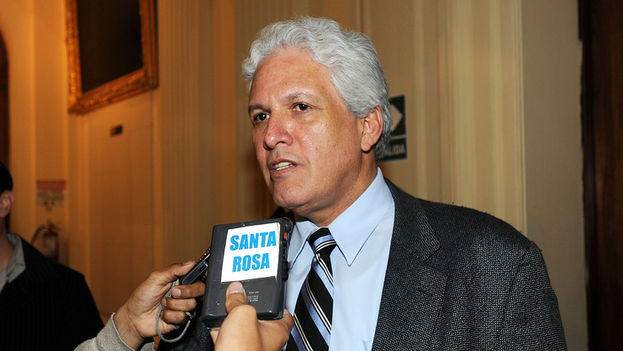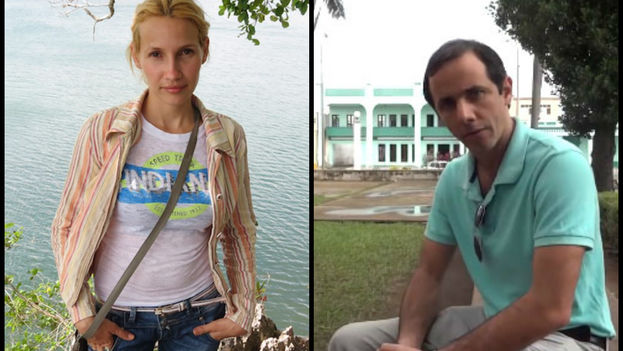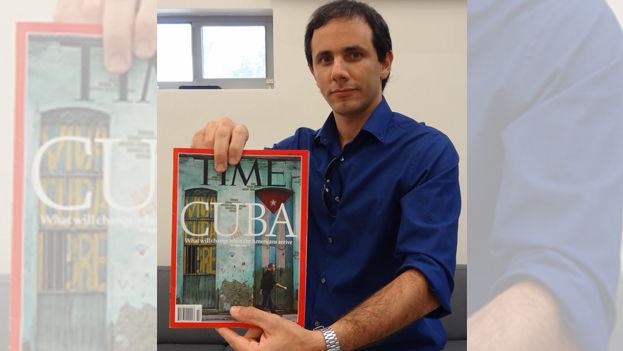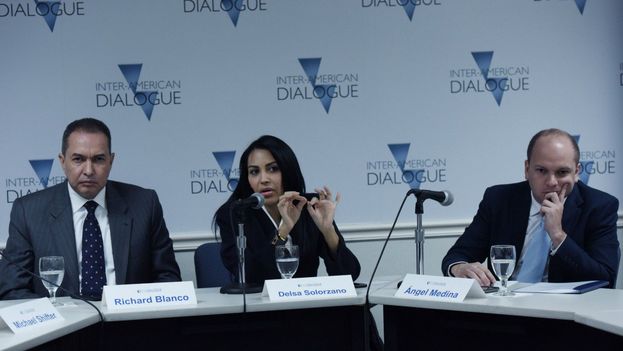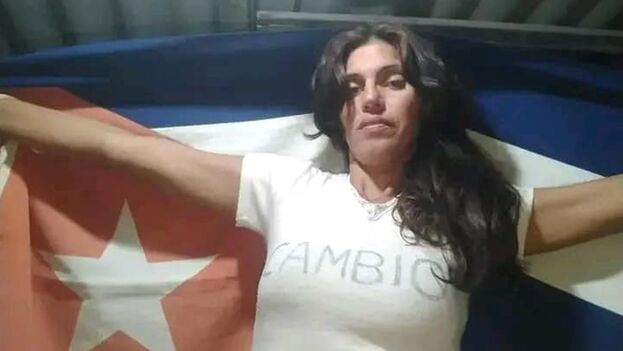
![]() 14ymedio, Havana, 4 September 2023 — Henry Constantín, director of the independent newspaper La Hora de Cuba, is missing. The journalist from Camagüey was arrested along with his colleague José Luis Tan Estrada, this Monday, when both tried to attend the trial against the Cuban activist Lenelis Delgado Cué, who is being prosecuted for the crime of contempt before the Popular Municipal Court of Camagüey.
14ymedio, Havana, 4 September 2023 — Henry Constantín, director of the independent newspaper La Hora de Cuba, is missing. The journalist from Camagüey was arrested along with his colleague José Luis Tan Estrada, this Monday, when both tried to attend the trial against the Cuban activist Lenelis Delgado Cué, who is being prosecuted for the crime of contempt before the Popular Municipal Court of Camagüey.
Tan Estrada was released in the afternoon after spending more than five hours “locked in a dungeon with the most inhumane conditions that can exist,” according to what he himself denounced on Facebook . The reporter was fired at the end of last year from his position as professor of Journalism at the University of Camagüey for, according to the academic authorities, being a “negative influence on the students.”
As for Constantín, his phone continues to be off this Monday afternoon and this newspaper has not been able to contact him or his relatives. La Hora de Cuba reported it was unable to reach the court because “from the early hours of the morning” it was “surrounded by police and State Security agents.”
Lenelis Delgado, known on social networks as Mambisa Agramontina, has been in prison since April 4, when she was arrested at her home and transferred to the State Security headquarters in Camagüey known as Villa María Luisa. She is currently being held at the Kilo 5 Women’s Prison.
“She is in good health and firm in her convictions. My daughter is my pride and she will never fail her ideas and her fight for the freedom of Cuba”
Last October, Delgado had been fined 3,000 pesos under Decree Law 370, after “exercising her freedom of expression on Facebook,” La Hora de Cuba published when interviewing her. At that time, she was “accused of disobedience, with the risk of imprisonment, for not responding to a police summons.” The activist, a mother of three children, was intimidated after making several live broadcasts criticizing the island’s regime. continue reading
More recently, she denounced on social networks the repression against her friend also activist Aniette González, who was tried for the crime of “insulting patriotic symbols.” González, 43, was arrested on March 23 in Camagüey for posting photos on social networks of her body covered with the Cuban flag. Delgado, on the cover of her Mambisa Agramontina Facebook page, has a collage with González’s photos next to the flag.
“She is in good health and firm in her convictions. My daughter is my pride and she will never fail her ideas and her fight for the freedom of Cuba,” the activist’s mother, Leticia Cué, told La Hora de Cuba. Last July, through the Cuban Observatory for Human Rights based in Madrid, Cué denounced “the arbitrary repression against my daughter, who was prevented from using the telephone to make calls to family and friends for two months.”
From prison, Delgado also warned that she suffered from scabies and did not have medical attention from prison health personnel. José Luis Tan Estrada, who received a call from the opposition, made public Delgado’s medical situation: “The doctor does not know that I exist,” Delgado told the journalist.
____________
COLLABORATE WITH OUR WORK: The 14ymedio team is committed to practicing serious journalism that reflects Cuba’s reality in all its depth. Thank you for joining us on this long journey. We invite you to continue supporting us by becoming a member of 14ymedio now. Together we can continue transforming journalism in Cuba.

